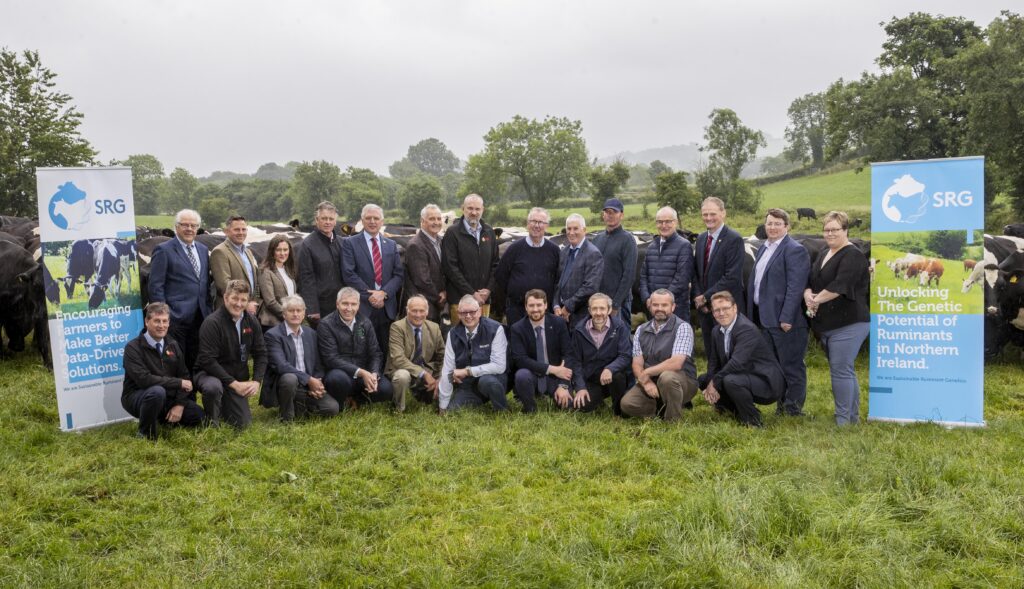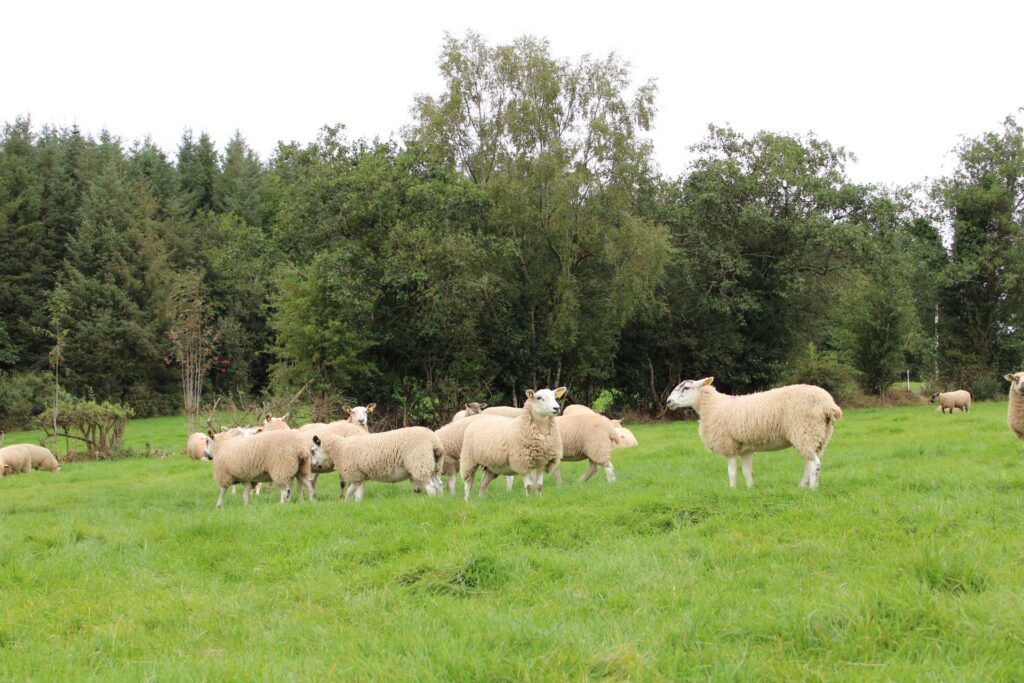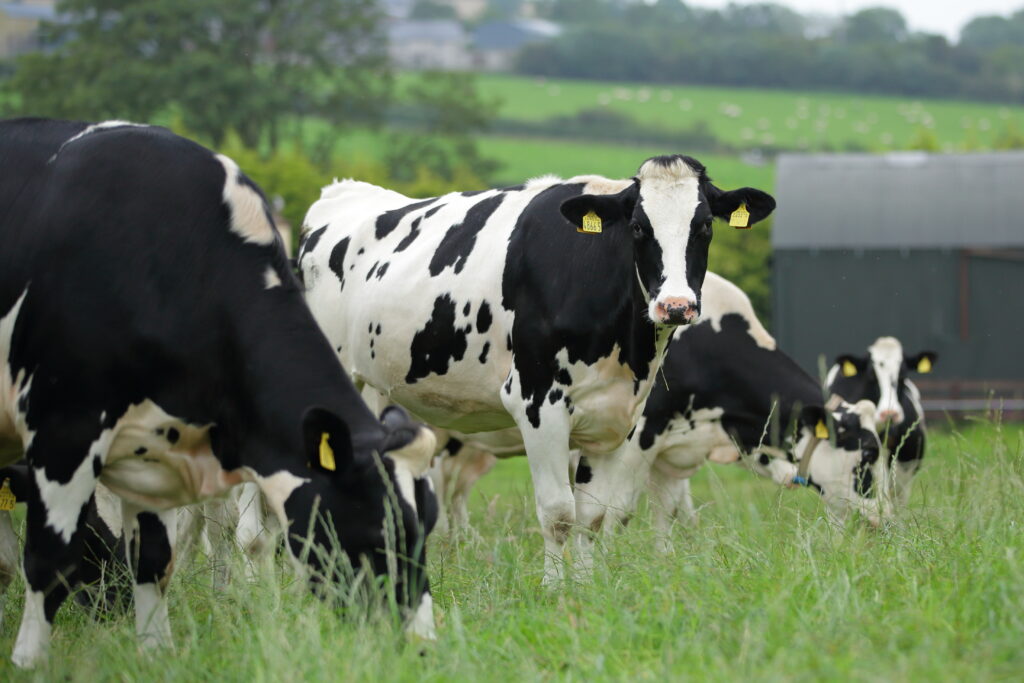The long awaited Sustainable Ruminant Genetics (SRG) program for Northern Ireland has been officially launched.
It will be a key project in helping farmers achieve their climate change goals.
In essence, the new program will be the vehicle through which improved livestock programs will deliver significant reductions in greenhouse gas (GHG) emissions within the cattle and sheep sectors.
The initial focus of the project will be on the cattle and dairy sectors, followed by the sheep sector.
The participation of farmers will be encouraged through the decision to make compliance with the scheme conditional on eligibility for future agricultural support measures in Northern Ireland.
According to the Department of Agriculture, Environment and Rural Affairs (DAERA), SRG will help improve productivity and environmental performance in the ruminant farming sectors.
The program will be implemented by DAERA, in collaboration with the agri-food industry.
Farm stakeholder bodies in Northern Ireland have already come together to form a new company, Sustainable Ruminant Genetics (SRG) Ltd.
The new business was formed as a non-profit initiative. It is a strategic partnership between the Ulster Farmers Union (UFU), the Dairy Council for Northern Ireland (DCNI), the Livestock and Meat Commission (LMC) and the Northern Ireland Meat Exporters Association (NIMEA).
It will help DAERA perform several key functions, including promotion and commercialization of the new programme.

The CAFRE College of Agriculture, Food and Rural Enterprise will provide training to support the industry to maximize the benefits offered by SRG.
Breeding is expected to make a significant contribution to achieving greenhouse gas emission reduction targets. The first phase of this program will provide farmers with the data and evidence to make more informed breeding decisions to promote genetic gain in dairy and beef animals.
Sheep farmers will also want to increase the rate of breeding. However, at this stage, the best approach to achieve this has yet to be decided.
The new program was recently launched on Thoburn McCaughey’s farm in County Antrim. The business includes dairy, cattle and sheep farms.
Former president of UFU, Victor Chestnutt was named president of SRG.
The launch of the new program
Speaking at the launch event, he underlined the importance of food security as a global priority. And in this context, you have foreseen the role that agriculture and food in Northern Ireland can continue to play.
But Chestnutt also recognizes the need for all agricultural sectors to improve their efficiency levels, as they meet the targets set by Northern Ireland’s climate change legislation.

Farmers will change the way they run their businesses as they strive to reduce their levels of greenhouse gas emissions,” he added.
But all this can be achieved without reducing the commitments of agriculture and the sector, as regards food production.
The ruminant genetics program will provide farmers with the tools and data they need, helping them make better and more informed farming decisions.
This will create more productive farming practices resulting in carbon efficient animals.
According to Chestnutt, a different solution will be needed for sheep than for cattle: there is no centralized database for sheep.
Sheep
The SRG will work together with DAERA to integrate the sheep sector into the genetics program as soon as possible.
This will take into consideration the recent report of the Northern Ireland Sheep Industry Task Force, which outlines its vision for the future of the sheep sector.
It is estimated that only 12% of Northern Ireland dairy cows and 3% of suckler cows are involved in physical or financial benchmark reporting.
This compares poorly with the 70% dairy and dairy products compliance rate in the Republic of Ireland, as far as these matters are concerned.
Goals
In order to improve this situation in Northern Ireland, SRG will work to encourage farmers to become involved in the ruminant genetics programme, showing the benefits of this approach for their farm and the environment.

The goal is to include 70 percent of dairy and beef cows in the program’s benchmarking services within five years of the program’s launch,” Chestnutt said.
Genetic profiling and bovine DNA testing will be required to provide the desired genetic evaluations and SRG is currently exploring options with DAERA to provide this.
However, no decisions have been made regarding the required scale or delivery time.
The focus now for SRG is on promoting the ruminant genetics program and engaging with farmers to educate them on how they can take advantage of its services, including referral reports and training.
By participating in the programme, farmers will obtain vital data that can guide breeding decisions based on assessment of genetic merit to meet their individual business goals, which in turn will help reduce their carbon footprint while contributing to climate change goals.
SRG in context
The launch of SRG puts an end to all talk of the need for real information on the actual performance of Northern Ireland’s ruminants.
In essence, the new initiative takes us from the planning stage to the delivery stage of the farms’ response to climate change.
Adherence to the new regime is not compulsory in the legal sense. But actually it is. DAERA and livestock stakeholder bodies have confirmed that compliance with the new scheme is necessary for farmers who wish to receive the full set of support measures, once the current Single Payment Scheme ends.
Crucially SRG confirms the basic reality that achieving better efficiency levels is the only show in town, when it comes to farming meeting the emission targets set out in Northern Ireland’s climate change legislation.
In essence, the new program aims to identify those animals that produce the least methane.
The good news for farmers is the positive association between lower biogenic methane production levels and improved animal performance.
Thus, it should be possible to breed animals that tick both boxes.
For this to happen, breeders will be required to meet certain requirements. One of these will likely be the reference to both sire and dam details when registering a newborn calf.
At the time of registration, all calves will also be genotyped. This will require taking a tissue sample and sending it for analysis when the animal is initially tagged.
But farmers are already doing it, when it comes to bovine viral diarrhea (BVD). So carrying out the proposed genotyping work shouldn’t be that big of a challenge, at least at the breeding level.
An obvious omission is the fact that SRG will not commit to making milk registration mandatory.

The adoption of this technology in the Northern Ireland dairy sector remains extremely low. This is a situation the beggars believe in, as regular milk logging allows farmers to consistently identify their best performing cows on a completely scientific basis.
When it comes to dairy products, long gone are the days when bulk tank data alone allowed farmers to develop breeding programs that were fit for purpose.
And milk production is just one piece of the puzzle. Obtaining an accurate perspective on individual cell counts and udder health data must be placed at the heart of future dairy initiatives.
So it is up to the milk processors to address this critically important issue.
#Sustainable #Ruminant #Genetics #Program #Launched #Agriland.ie
Image Source : www.agriland.ie
